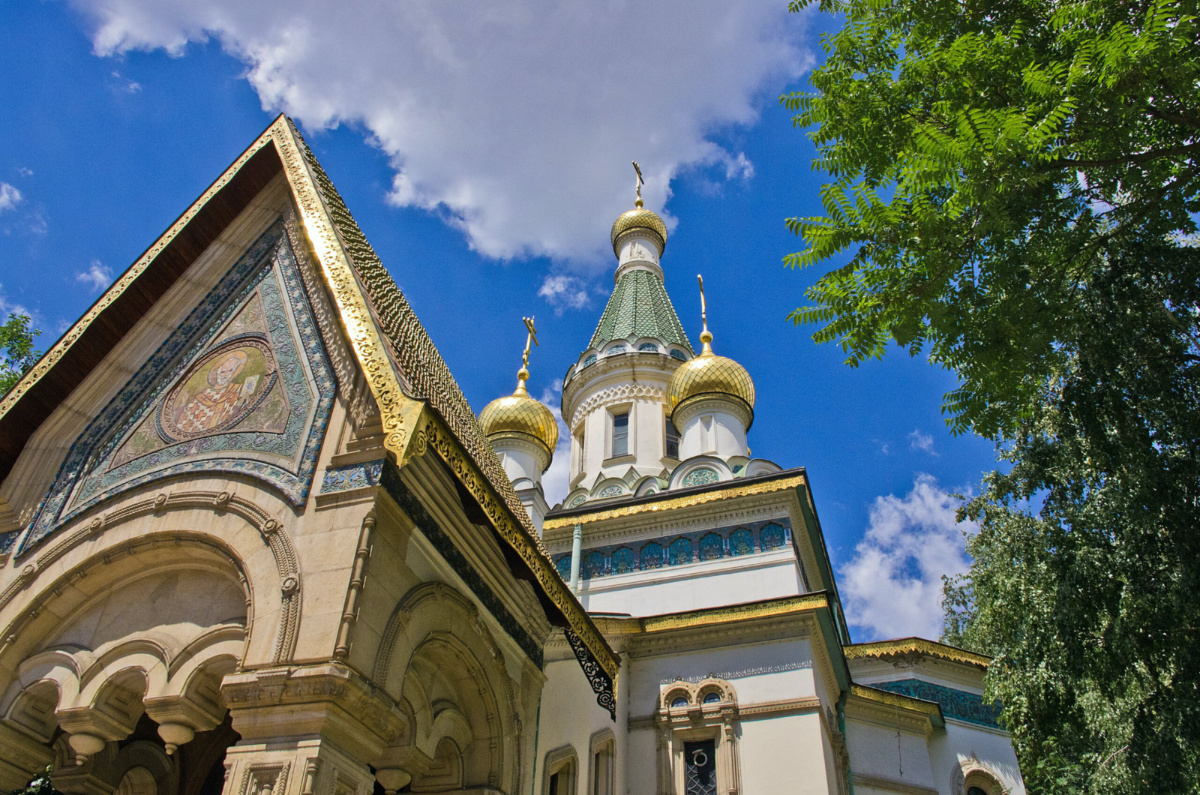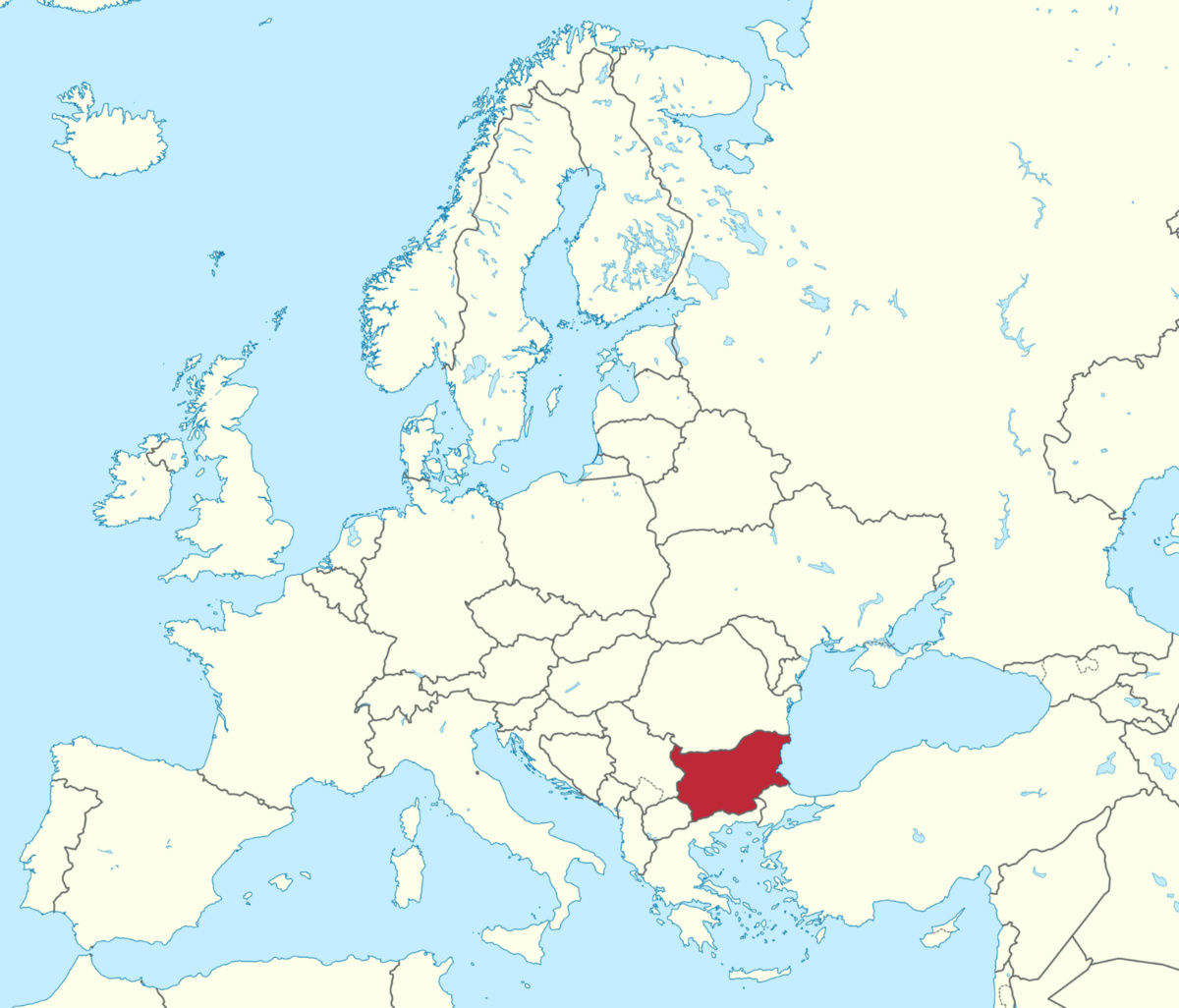After three high-ranking members of the Russian Orthodox Church were expelled from Bulgaria on charges of espionage last month, their former church is not only at the centre of a diplomatic rift between the Russian and Bulgarian governments but an ecclesiastical one between the two countries’ Orthodox churches.
On 21st September, Bulgarian authorities arrived at the residence of Archimandrite Vassian (archimandrite is the equivalent of an abbot), head of the church of St Nicholas the Miracle-Maker in Sofia, and informed him and two other priests, both Belarusians, that they were being deported from the country, before shuttling them to the border with Serbia.

The Russian Church of St Nicholas the Miracle-Maker in Sofia, Bulgaria. PICTURE: Antoine Taveneaux/Wikimedia/Creative Commons
According to Bulgaria’s state security service, Vassian and his colleagues had been involved in “the Implementation of various elements of the Russian Federation’s hybrid strategy to purposefully influence socio-political processes in the Republic of Bulgaria in favour of Russian geopolitical interests.”
But in a statement, the Russian Orthodox Church said Bulgaria was acting out of anti-Russian bias.
“The expulsion of priests, whose calling is service to God and people and the preaching of peace and brotherhood among nations, is an outrageous act dictated by Russophobic motives and the desire to erase the glorious pages of the common history of Bulgaria and Russia.”
“We are outraged and shocked by what happened,” Russia’s ambassador to Bulgaria, Eleonora Mitrofanova, said. “Their current goal seems to be a break in the relations between the sister Russian and Bulgarian Orthodox churches and the brotherly ties between the Russian and Bulgarian people.”
Bulgaria’s Prime Minister, Nikolai Denkov, fired back more simply: “Russian priests were not expelled, people who worked against the national interests of Bulgaria were expelled.”
Russian Orthodox clergymen have recently been accused of acting on behalf of the Russian state in the United States.
Last month, Foreign Affairs magazine reported that the FBI had warned Russian and Greek Orthodox parishes in the US that Russian intelligence services may be using their churches to recruit assets. The head of the Russian church in Moscow, Patriarch Kirill, has been accused of having served the KGB since the 1970s and, later, modern Russia’s FSB intelligence service.
“Cooperation between the Moscow Patriarchate at the highest levels and the Russian state is taken for granted by all observers,” Samuel Noble, a scholar of Orthodox Christianity, told Religion News Service.
The two countries’ shared faith has long been a foreign affairs boon for Russia, Noble added.
“In Bulgaria, Orthodox Christianity, alongside linguistic and other cultural ties, is often an important source of pro-Russian sentiment, even if the Bulgarian church has been quite divided over Russia even well before its invasion of Ukraine.”
Suspicions that Archimandrite Vassian may have ties with Russian intelligence were first raised in neighbouring North Macedonia, where he represented the Russian Orthodox Church as well. Macedonian leaders accused him of working to halt plans by North Macedonia’s branch of Orthodox Christianity to separate itself from the Serbian Patriarchate.

Bulgaria, red, in Eastern Europe. PICTURE: Courtesy Wikimedia/Creative Commons
In May of last year, the Ecumenical Patriarchate of Constantinople, which has often acted as a mediator between the Orthodox world’s bishoprics and patriarchates, recognised the Macedonian church’s independence (in this case, from Belgrade), as it had done for Orthodox Church of Ukraine from Moscow in 2018. The Moscow Patriarchate severed its communion with Constantinople and other aligned patriarchates in retaliation for the 2018 decision.
With Vassian and his colleagues gone, the fate of his church building in Sofia has continued to be a source of tension between Russia and Bulgaria and their two churches. The century-old St Nicholas, named for the patron of the last tsar, is a symbol of Russia’s stake in Bulgaria’s affairs. It was built on the site of a former mosque after Bulgaria broke free from the Ottoman Empire with Russian help. Even through the Soviet era, the church was maintained as a sacred site. Today it holds the remains of St Seraphim, a Russian Archbishop of Bulgaria canonised in 2016.
In the Orthodox tradition, the church is known as a metochi, a word suggesting an ecclesiastical equivalent of an embassy.
In the wake of the archimandrite’s dismissal, the Russian Embassy’s call for the church to be closed was disregarded by Bulgaria’s Patriarch Neophyte, who appointed priests from his own church to serve the shrine.
“The Holy Metropolis of Sofia guarantees that no part of the property of the church will be lost or damaged. As before, believers will be able to bow before the relics of Saint Seraphim of Sofia and beg for his gracious help and support,” the Bulgarian Patriarch said in a statement, making clear that the order “should be understood only in its spiritual aspect.”
We rely on our readers to fund Sight's work - become a financial supporter today!
For more information, head to our Subscriber's page.
The statement added that he asked the Russian Embassy for its cooperation in keeping the church running and that he had informed Patriarch Kirill of his decision, though it did not say whether Kirill had responded.
Neither the Russian nor Bulgarian churches responded to RNS’ requests for further comment.
From exile, however, Vassian has argued that only Kirill, not Neophyte, has that power over a Russian church. “Strictly speaking, this parish is ours, the Russian Church, and only the Patriarch of Moscow can appoint priests there,” he told Tass, Russia’s state news service.
While Bulgarians protested outside the church for its reopening, some of Bulgaria’s own church leaders agreed with Vassian. “It never belonged to anyone but Russia and the Russian embassy,” Metropolitan Gavriil of Lovech, a city in central Bulgaria, told Bulgarian media.
But Metropolitan Naum of Ruse argued that a 1950s decision by the Russian Patriarchate actually put all of its sites in Bulgaria under the purview of the Bulgarian Patriarchate.
Bulgarian church leaders concluded a synod on Tuesday, 3rd October,, where they formally adopted a position in favour of reopening the church, though some dissented.
Clarification: The story has been amended to clarify the May, 2022, decision by the Ecumenical Patriarchate of Constantinople to recognise the independence of North Macedonia’s branch of Orthodox Christianity.






